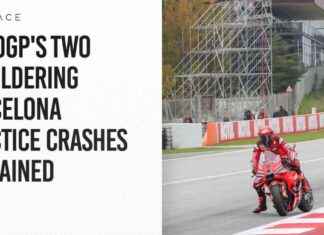The first words of former Slovak Prime Minister Robert Fico after learning of his electoral victory have been reassuring to European partners: “We are not going to change the orientation of foreign policy,” said the leader of the pseudo-social democrats of the Smer-SD after elections that reveal the lack of reliability of the exit polls, which gave him the loser, and that Fico is capable of politically resurrecting from the dead.
The message to the European partners must have been due to a legal imperative, since until the opening of the electoral colleges, their campaign questioned the values ??and foundations of the EU and opened a crack in the unity and cohesion that Brussels has forged around Ukraine. “Not one more bullet to support Ukraine” in a war that he blamed on “Ukrainian Nazis,” the candidate said in a campaign with a pro-Russian reek.
The narrative of this 59-year-old ex-communist lawyer, lover of bodybuilding and cars, resonated with an electorate tired of the war in Ukraine dominating the national political agenda and in need, according to sociologist Roman Pudmarík, of strong leaders who provide stability. . “Those who previously voted for Vladimír Meiar today vote for Robert Fico,” he maintains.
Fico has declared that if he takes office he will do everything possible to begin peace negotiations in Ukraine and reiterated that he will not send weapons to Ukraine.
In that he was sincere. Behind its purely electoral proclamation, there is the fact that the outgoing government has already given Kiev everything it could give, including its fleet of MIG-29 fighters and the S-300 anti-aircraft defense system. The arsenals are empty, but in Fico’s mouth: “The Slovaks now have more important problems than Ukraine,” and “I don’t like that the EU doesn’t have its own opinion on some things and that it is controlled by the United States.”
Fico has tried in his triumphant speech to give credibility to his promise of continuity in foreign policy by arguing that the Smer -SD was decisive in the referendum on accession to the EU in 2003 and in the entry into the Schengen area and in the euro zone in 2009. But 24 hours are too few to bury what was said in the electoral campaign and not everything that the former prime minister understands as foreign policy is within the framework of the EU. Because among the issues on which Fico disagrees with Brussels is the community management of immigration, LGBT rights and Justice.
Away from the political front line since 2018, when massive street protests over the murder of journalist Ján Kuciak and his fiancée forced him to resign, Fico has been rehabilitated at the polls with 22.94% of the votes. He has a fourth term within reach, but he will need at least two partners and the natural thing is that he seeks an agreement with the Hlas, founded from a split of the Smer, -SD and the SNS. Together they would obtain about 79 deputies of the 150 that make up the Slovak legislative chamber, but the rampant populism exhibited by practically all of the candidates during the campaign and the quarrels between their leaders do not guarantee that alliance.
Fico plans to speak with all political forces, but for that he needs the order of the Slovak head of state, Zuzana Caputová, and that has not yet occurred. “We are going to calm down and wait for the president’s call. When we receive the order to form a Government we will open the round of contacts,” she declared. In his opinion, the negotiations on the coalition program should last about two weeks.
Your Government’s priorities are clear. At the first cabinet meeting he will strengthen border protection measures to put an end to the “absurdity of Slovak police patrolling with Czech police, thus protecting the Czech Republic from immigration, and not the Slovak one,” he announced. Fico is not considering making fundamental changes in the structure of law enforcement, but in the chain of command.
The Smer-SD is also ready for personnel changes in the bodies responsible for enforcing the law of criminal procedure and on persons who, due to enjoying immunity or privileges, are not subject to the jurisdiction of the police and judicial authorities. The party does not intend to make changes to the basic structure of these bodies, but sees a problem in political appointments to various positions, for example, to the leadership of the Special Prosecutor’s Office (ÚŠP).
“I don’t remember anyone from Smer-SD talking about abolishing the Specialized Criminal Court (TCE) or the Prosecutor General’s Office. Nobody is going to close it. We only say that we are prepared for a change of people,” Fico said to allay fears of a reform. against the independence of the judiciary that, in the process, whitens his party, riddled with corruption cases.
“We will assume power again without revenge,” although, obviously, there is a problem” with the head of the National Police, Stefan Hamran, and with the special prosecutor Daniel Lipsic, whom he accuses of political persecution. “There is no question of of a revenge. “They are elementary questions,” he indicated.
Facing the voters, Fico stated that he wants to end political instability in the country and ensure that the legislature will last four years. “We are going to treat the people decently. With me, the people have no reason to be afraid,” was one of the campaign phrases first uttered by a victorious Fico who, in the end, might not be.
There is an alternative to a tripartite led by the Smer-SD. It is enough for the social democrats of Hlas to renounce entering a Government with Fico and to join Progressive Slovakia (PS), the second most voted party, and the coalition Ordinary People and Independent Personalities (OLaNO). They would add 75 seats. With the support or abstention of a single deputy, Fico would be excluded from the Government equation.







